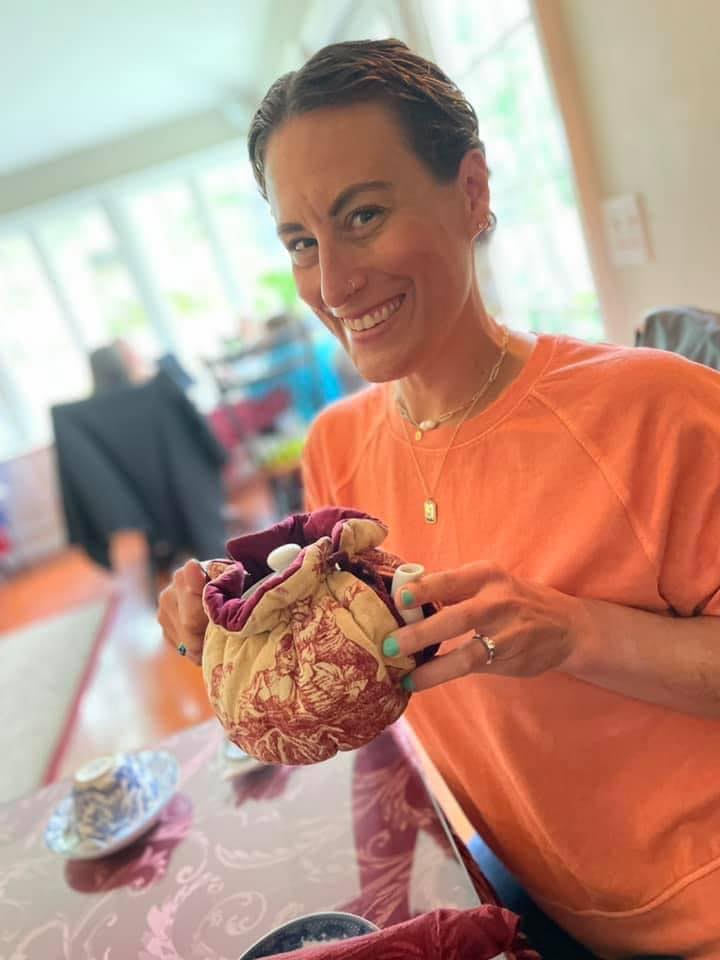

From Surviving to Thriving: Technology Coaching for Newbies to Ninjas |
Listen and learn : Ed talk
Jessica Brittingham Jen Thomas
Come and learn about our Coaching Survival Kit, which includes instructional practices include Google tools, lesson plans, projects, student work, rubrics, and other tools aligned with ISTE Coaching Standards. You'll leave with the resources and curriculum necessary to implement a successful coaching platform at your school.
| Audience: | Coaches, Curriculum/district specialists, Technology coordinators/facilitators |
| Skill level: | Beginner |
| Attendee devices: | Devices required |
| Attendee device specification: | Smartphone: Android, iOS, Windows Laptop: Chromebook, Mac, PC Tablet: Android, iOS, Windows |
| Participant accounts, software and other materials: | Access to Google apps. |
| Topic: | Coaching & mentoring |
| ISTE Standards: | For Coaches: Change Agent
|
The objective of this session is to provide participants with a full technology coaching curriculum, and the materials, network, and resources necessary to implement a successful coaching program in the current COVID educational climate. Participants will walk away with a comprehensive understanding of the Google Coaching process, and an extensive collection of resources ready to use in schools. The world of public education, as we know it, permanently changed with the onset of COVID-19 and the world of remote learning during the 2020-2021 school year (good-bye snow days). Many Instructional Technology coaches were concerned that teachers would shy away from technology integration during the 2021-2022 school year, simply due to burnout, wanting to return to “normal”, or stress. This, however, does not seem to be the case, and teachers, by and large, appear more eager than ever to continue to learn, grow, and build upon the technological foundations they established during remote learning. Therefore, it is imperative that technology coaches strike while the iron is hot, and work to implement a technology coaching system that continues to bring teaching and learning into the 21st century.
Presenters will share a detailed coaching program that includes a wide array of technological resources including their Coaching Survival Kit (Google Site). Instructional practices will focus primarily upon Google Workspace for Education tools as well as various lesson plans and strategies that are closely aligned with the ISTE coaching standards. The presenters will focus on the importance of relationship-building between coaches and teachers, by using their own professional relationship as an example (Jessica Brittingham worked as a teacher under Jen Thomas’ coaching for two years prior to assuming the role of a coach herself). The presenters will share the tips and tricks they used to effectively collaborate with each other, despite the pandemic (Google Keep and Meet), and how they continued to focus on project-based learning and blended instructional practices throughout the COVID experience. The presenters will share lesson plans, project ideas, student work samples, rubrics, organizational and collaborative tools, and more so that each participant will leave the presentation prepared and supported in launching a coaching program at their home school. As effective and successful coaching requires connections to others in similar roles, the presenters aim to facilitate a real-time opportunity via Twitter for participants to network with other coaches to create and/or enhance their Personal Learning Network (PLN). Evidence of success will include teacher and student testimonials, combined with evidence of student work before and after launching the coaching initiative; the growth speaks for itself.
1) Introduction (5 minutes)
Presenters introduce themselves, their pronouns, and their story
2) Relationship building as the foundation of effective coaching (25 minutes)
a. Email Intro
b. Newsletter
c. Tech Tuesday
d. Department meetings
e. Collaborating with teachers - email, face to face, Google Keep
f. In-service PD
g. COVID: flipped tech PD, on-call for teachers (survival mode)
h. Faculty Meetings (focus on multiple building approaches)
i. Modeling how to fail and be vulnerable; ”failing forward”
j. Just-in-time resources (curated resources via Padlet, Wakelet, Classroom)
k. Co-Teaching
l. Calendar Appointments
m. Relationships with admin
3) Time to Get Coaching: (20 minutes)
a. Pre-approved SMART goals + program to achieve
b. Digital Learning Team
c. Gripe Jam Protocol
d. Meet-Visit-Meet cadence
e. Peer observation
f. Group meetings (therapy sessions)
g. 1:1 meetings
h. Establishing your PLN (Twitter)
4) Defining your role as a leader and a coach (10 minutes)
a. Bi-weekly meetings with admin: making sure you have a champion
b. Part of the Leadership team: having a voice & seat at the table
c. Being intentional about what the role is and what it is not...and sticking to that
ISTE Standards for Coaches
Technology, Coaching, and Community
The Effect of Coaching on Teachers’ Instructional Technology Use in a 1:1 Environment
Coaching Matters
The EdTech Coaching Primer
Tech Coaches Network
Ask the Tech Coach
Google Certified Coaching Program

Jessica Brittingham taught fourteen years of high school English before assuming her role as Technology Integration Specialist with Uxbridge Public Schools. Jess moved from California and earned her Bachelor of Arts degree in History from UMass Boston in 2000. She earned a Master’s Degree in Professional Writing from UMass Dartmouth in 2007. Jess is a Google Certified Trainer and Coach (pending), and plans to begin working on a doctorate degree in Educational Leadership next year. She is the proud mother of 2 girls, Rowan and Harper, and the proud-stepmother of 3 boys, Christopher, Matthew, and Zachary.

Fireside Chat With the ISTE Board: Recover, Reconnect and Reimagine Professional Learning
Leadership Perceptions on Building Culture and Impact With ISTE Certified Educators
Preparation to Teach in Technology-Rich K-12 Classroom Environments